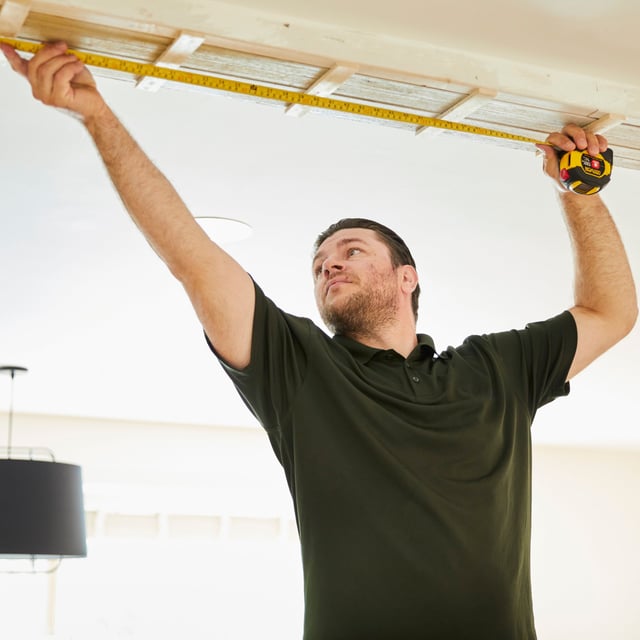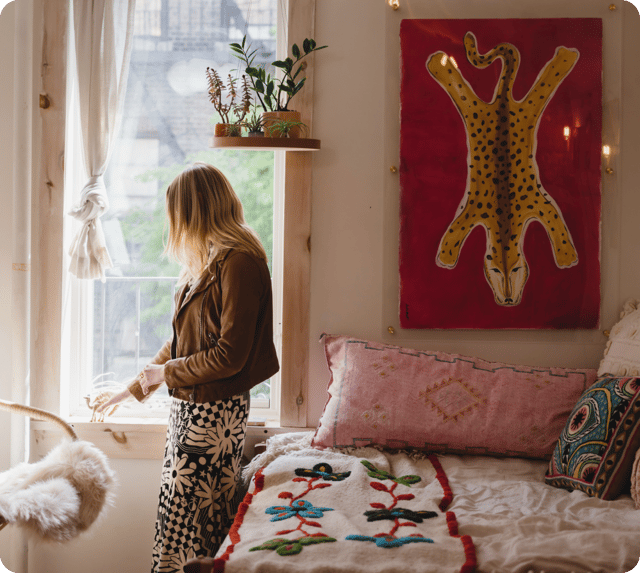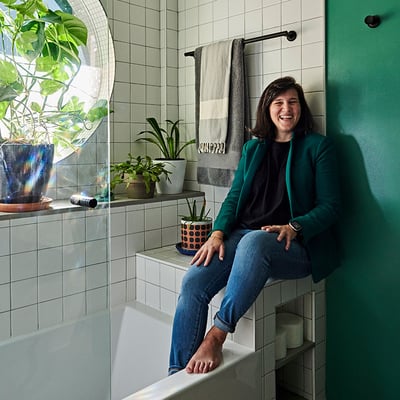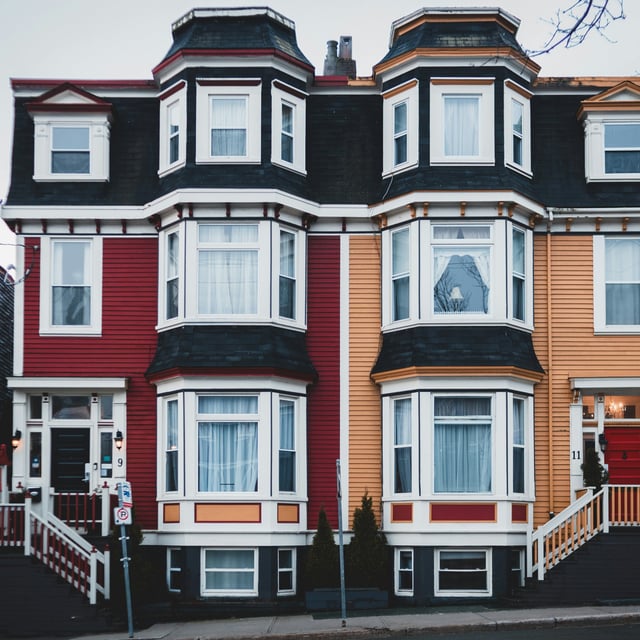
Cost
Ceiling Installation Costs: Repairs & Replacement Pricing
02.12.2026


In This Article
There’s something undeniably appealing about studio life in the city. Everything you need is right there in one compact space—no wasted square footage, no upstairs neighbors stomping around. But let’s be honest: sometimes that “cozy charm” can feel much more cramped than cute.
Maybe the kitchen hasn’t been touched in 20 years. Maybe your closet is really just a rod in the corner. Or maybe it’s just that the layout doesn’t quite work—you’re eating dinner two feet from your bed and trying to hide your laundry behind a curtain. That’s where a smart renovation can make a huge difference.
The goal isn’t to magically make the apartment bigger. It’s to make it more livable, efficient, and tailored to how you move through the space day to day. That might mean carving out a separate sleeping area, rethinking your storage, or just upgrading the finishes so it feels like a place you’re proud to come home to.
This guide is here to walk you through it. We’ll cover the real costs of renovating a studio, how long it actually takes, and where to spend versus where to save. And we’ll share practical tips to help you plan smarter, because every detail matters in a space this small.
Design a Home That’s Uniquely Yours
Block can help you achieve your renovation goals and bring your dream remodel to life with price assurance and expert support.
Get Started
Renovating a studio can be smart, especially in a city like New York, where square footage is limited and layout matters. But before you dive into design decisions, it helps to understand what you’re likely to spend.
Nationally, the average cost to renovate a studio apartment ranges from $25,000 to $50,000. In New York City, that number often runs higher. Full-scale renovations commonly land in the $60,000 to $100,000+ range between labor, permits, and material costs.
On a per-square-foot basis, expect to pay anywhere from $100 to $300. That wide range reflects different renovation levels:
Studios may be small, but because every zone is visible, even minor upgrades can make a big impact—and drive up costs quickly if you’re renovating multiple areas at once. At Block, we help homeowners make realistic choices early on, so you can stay focused on what matters most and keep the project within budget.
Design a Home That’s Uniquely Yours
Block can help you achieve your renovation goals and bring your dream remodel to life with price assurance and expert support.
Get Started
No two studio renovations are exactly alike. What you’ll spend depends on your space, your goals, and where you live. Here are the main factors that shape pricing.
Most studios fall between 300 and 600 square feet. Even within that range, costs can vary. A straightforward open-plan layout is typically easier (and cheaper) to work with than one with built-in partitions or odd angles requiring reconfiguration.
Breaking up space for separate sleeping and living zones can require added framing, electrical work, or storage solutions, which all add up. If you’re planning to convert a nook into a closet or section off a small workspace, that kind of layout change adds time, labor, and material costs.
One of the biggest variables is how much you plan to change. Cosmetic work, like painting, swapping out hardware, or replacing flooring, tends to cost less. But if you’re doing a full gut, updating systems, or remodeling the kitchen and bath, costs climb fast.
Kitchens and bathrooms are usually the most expensive parts of a studio renovation. If you’re keeping the layout but upgrading finishes, you’ll likely spend less. Move plumbing or take walls down? That’s where the price tag grows. The deeper you go into infrastructure, the more trades are involved, and the more permits you’ll likely need.
Renovation costs vary by city. In New York, labor is more expensive, building logistics are more complex, and timelines are often longer due to approval processes.
Older buildings with limited elevator access or strict work hours add time, and time adds cost. Plus, qualified labor is in high demand, increasing prices in major metro areas.
Also worth noting: many contractors in NYC won’t even bid on small jobs unless they’re worth their time, which means pricing can skew higher just to get someone to take the job.
Materials can swing your budget more than you might expect. Vinyl plank flooring and prefabricated cabinets are affordable and can look great. Custom cabinetry, premium tile, and designer fixtures will elevate the look and the cost.
A few examples:
In a studio, you need less material overall, but what you choose really matters, since everything is in view. There’s nowhere to hide a bad finish or mismatched fixture.
In cities like NYC, permits are required for most plumbing, electrical, or structural work. Fees usually fall between $1,000 and $5,000, depending on the project’s complexity.
If you’re in a co-op or condo, be ready for board approvals, alteration agreements, and contractor insurance requirements. These processes can be time-consuming and sometimes come with their own costs, so factor them in early. You might also be asked to submit drawings, insurance certificates, or pay refundable deposits, especially in buildings with a lot of residents.
Renovate with confidence every step of the way
Step 1: Personalize Your Renovation Plan
Step 2: Receive Quotes from Trusted Contractors
Step 3: Let Us Handle the Project Details

Even in a one-room studio, it helps to think in zones. Each space has its own purpose—and its own costs. Here’s how things typically break down.
The kitchen sets the tone for the whole studio. Updates often include new cabinets, counters, backsplash tile, and appliances. Space-saving designs like open shelving, smaller appliances, or smart storage can make a big difference.
Estimated kitchen costs:
In compact kitchens, splurging on quality finishes often makes sense—you’re dealing with fewer square feet, so a little extra goes a long way.
Bathrooms are often the most labor-intensive to renovate. Expect to update the tile, fixtures, vanity, toilet, and lighting. In older buildings, plumbing work is common and can drive costs up.
Estimated bathroom costs:
Because space is tight, you’ll also want to think carefully about storage and layout. A well-placed niche or medicine cabinet can make a huge difference in how the space feels daily.
This zone has the most flexibility and impact. Most renovations include new flooring, paint, lighting, and often some form of built-in or modular storage to keep the space efficient.
Estimated costs vary:
In studios, the living and sleeping zones often overlap, so you want the space to feel cohesive. Built-ins or furniture that serve dual purposes, like daybeds, hidden desks, or storage benches, can help make the area more functional and less cramped.
Smart design makes this space feel bigger, more functional, and truly your own.
Older buildings can hide a lot behind the walls. Asbestos, lead paint, and outdated systems are common in New York studios and can turn up unexpectedly during demolition.
Abatement for asbestos or lead isn’t optional and can run thousands of dollars, depending on how widespread the issue is.
Plumbing and electrical upgrades may also be necessary, especially if pipes are corroded or wiring isn’t up to code. And if structural repairs are needed—water damage, rot, or framing issues—those will need to be addressed before anything else moves forward.
You might also discover unexpected conditions like uneven subfloors or noncompliant firestopping that must be fixed before work can continue. We always recommend building a contingency buffer into your budget, just in case.
Renovating on a budget? It can be done. The key is to make smart decisions early and focus on impact over excess.
Phasing your project can help. Tackle essentials now and hold off on less urgent updates. Planning this way helps avoid scope creep.
Affordable materials can still look great. Laminate that mimics hardwood, prefabricated cabinetry, and simple tile can go a long way when installed well.
Reusing what you have is another easy win. If your cabinets are in decent shape, a fresh coat of paint and new hardware might be all you need. You can also salvage lighting, knobs, mirrors, or shelving for reuse or resale.
And in small spaces, multi-functional furniture makes a huge difference. Think Murphy beds, under-bed storage, fold-down desks, and other dual-purpose pieces that help you maximize both form and function. A little creativity in layout and furniture choice can save you from needing more built-in work down the line.
Studio renovations tend to be quicker than larger projects, but scope still matters. A light update—paint, fixtures, flooring—can wrap up in 3 to 6 weeks. A more involved kitchen or bath remodel might take 8 to 12 weeks. Full gut renovations? Plan on 3 to 5 months, especially if you’re in a co-op or condo with board approvals.
To avoid delays, start early with permits and materials. Waiting on paperwork or backordered items is one of the most common causes of slowdown. We help homeowners build realistic timelines that keep things on track.
Add time if you’re ordering custom cabinetry, tile with long lead times, or high-end appliances. It’s better to pad the timeline and be pleasantly surprised than to underestimate and face delays halfway through.
Choosing the right contractor can make or break your project. In New York, working with someone who knows local buildings, regulations, and logistics is especially important.
Start with referrals. Ask friends, neighbors, or your building’s supervisor if they know someone well. You can also search vetted online directories—just be sure to double-check experience.
Look for contractors who’ve done similar work. Ask about:
Always check for licenses, insurance, and references. Read reviews carefully, especially anything about delays, cost overruns, or communication issues.
When you get proposals, make sure they’re detailed. The quote should include labor, materials, scope of work, estimated timeline, and payment structure. Be wary of vague or unusually low bids—those can lead to costly surprises later.
Red flags include hard-to-reach contractors, pressure to commit quickly, and a lack of documentation.
At Block, we vet every contractor on our platform and match homeowners with experienced, trustworthy, and well-suited professionals. The goal isn’t just to finish the project—it’s to make the whole process less stressful from day one.
Turn your renovation vision into reality
Get matched with trusted contractors and start your renovation today!
Find a Contractor
Renovating a studio might look simple, but it requires just as much planning and expertise as a larger home. The difference? Every decision matters more because you see and use every inch of the space.
By understanding the full picture—from costs to timelines to hidden pitfalls—you can feel confident and prepared in your project. Know your priorities. Set a clear budget. Partner with people who understand what small-space renovations take.
With the right approach and the right team, your studio can feel completely transformed. Not just new—but smarter, more functional, and completely you.
Thinking about remodeling your studio apartment? Get a free personalized estimate and find out what’s possible in your space. Whether you’re early in the process or ready to start, we’re here to help you plan smart and confidently build.

Written by Block Renovation
What is the cheapest way to renovate a studio apartment?
How long does a full studio apartment renovation typically take?
Do I need a permit to renovate a studio apartment in a condo or co-op?
What upgrades increase the value of a studio the most?
Can I live in my studio during the renovation process?

Renovate confidently with Block
Easily compare quotes from top quality contractors, and get peace of mind with warranty & price protections.
Thousands of homeowners have renovated with Block

4.5 Stars (100+)

4.7 Stars (100+)

4.5 Stars (75+)

Cost
Ceiling Installation Costs: Repairs & Replacement Pricing
02.12.2026

Apartment and Condos
Condo Remodeling: Guide for NYC & Other Major Cities
01.21.2026

Apartment and Condos
Apartment Remodeling Guide - Timelines, Costs & Logistics
01.21.2026

Apartment and Condos
Renovating Multifamily Units and Buildings
09.29.2025

Cost
How Much Does a Bathroom Addition Cost?
09.26.2025
Renovate confidently